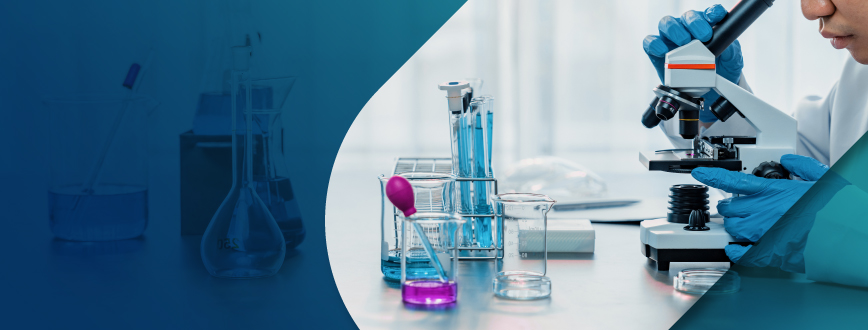Ensuring the drug’s quality and efficacy in the pharma industry’s expanse is pivotal. Every drug, tablet, or capsule should meet certain standards and limitations before it reaches the patient, ensuring quality and safety. The presence of unwanted impurities may influence the bioavailability, safety, and efficacy of API’s various regulatory authorities, such as ICH, USFDA, etc., which have specified certain limitations for impurities in APIs.
What are impurities
Impurities are the undesired components in the formulations other than the API (Active pharmaceutical drug). They are the critical quality attributes of drug substances and drug products that can potentially affect the drug’s safety and efficacy. These are naturally occurring or formed during the synthesis of a chemical compound.
Types of impurities
According to the ICH guidelines, the impurities associated with APIs are classified differently.
Organic impurities
These are the most common impurities found in every API unless proper care is taken in every step involved throughout the multistep synthesis
Sources of impurities are reagents, ligands, by-products, intermediates, starting materials, catalysts, and the degraded end products obtained during \after manufacturing the bulk drugs.
Inorganic impurities
Inorganic impurities often derive from manufacturing, mostly heavy metals, catalysts, ligands, residual metals, filter aids, or charcoal. Pharmacopeial standards can detect and quantify inorganic contaminants.
Residual impurities
The solvents used during manufacturing may remain in the final drug product. The residual solvents are typically controlled to ensure they are below the acceptable limitations. The residual solvents are like class-1 solvents to be avoided, class-2 solvents to be limited, and class-3 solvents with low toxic potential.
Genotoxic impurities
These are the DNA-reactive substances that have the potential for direct DNA damage and are prone to cause genomic mutations and increase the risk of cancer.
Other contaminants, such as bacteria, fungi, or endotoxins, affect drug development.
Importance of impurity profiling
Impurity profiling is essential for ensuring the safety, efficacy, quality, stability, process optimization, regulatory compliance, and quality control of APIs and their formulations in the pharmaceutical industry. In recent trends, impurity profiling has become a mandatory requirement for the new drug application.
There are several steps involved in impurity profiling. This involves the systematic analysis and characterization of impurities present in the pharmaceutical compound.
Quality control and assurance
Impurity profiling involves identifying, quantifying, and controlling impurities that may arise during manufacturing. It also involves analytical techniques such as chromatography, spectroscopy, and mass spectrometry, which are employed to detect and characterize impurities at various stages of production. Finally, it ensures the final drug product is of high quality.
Regulatory compliance
Regulatory agencies like the FDA and other international bodies require profiling data for the comprehensive impurity drug approval process. Compliance entails adherence to Good Manufacturing Practices (GMP) by meeting regulatory standards. Thus, manufacturers uphold the integrity of APIs safeguarding public health.
Stability studies
Impurity profiling identifies potential degradation pathways and degradation products. This information helps establish the drug product’s appropriate storage conditions and shelf life.
Process optimization
In drug development, impurity profiling can reveal the impact of different parameters on the formation of impurities. It minimizes the process-related impurities.
Formulation development
API manufacturing involves a systemic approach to identify, characterize, and control impurities through drug development. It encompasses the selection of excipients and optimizing manufacturing processes by understanding the potential sources of impurities and implementing formulation development.
Patient safety
Identification and quantification of impurities is essential in the process of maintaining patient safety by employing rigorous analytical methods and sticking to the regulatory standards manufacturers can overcome the risks associated with impurities that could compromise the safety and efficacy.
Analytical method validation
Impurity profiling aids in the validation of analytical methods that are used to detect and quantify process-related impurities. Thus, they ensure accuracy, precision, and reliability.
Comparability studies
Impurity profiling is performed to maintain comparable studies to assess impurity profile changes resulting from manufacturing process modifications or formulations.
Conclusion
The impurities profiling in drug substances and products is increasing in importance, and it helps in the detection, recognition, and quantification of bulk products and pharmaceutical formulations of various types of impurities. Drug safety is mandatory in various pharmacopeias to know the impurities present in APIs to limit the risk to patients’ safety and trust in the pharmaceutical industry, which helps in the efficacy and safety of the pharmaceutical product.
Global Pharma Tek, one of the leading companies in drug development, focuses on providing top-tier pharmaceutical materials and impurities for your formulations with rapid delivery. For further information about our services, please visit our website at www.globalpharmatek.com

